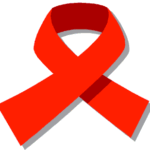 Researchers in Kenya and Canada studied the effects of mobile phone communication between healthcare workers and patients starting antiretroviral (antiviral) therapy in Kenya.
Researchers in Kenya and Canada studied the effects of mobile phone communication between healthcare workers and patients starting antiretroviral (antiviral) therapy in Kenya.
First, the details.
- 538 participants were randomly assigned to a treatment group.
- Short message service (SMS): Weekly messages from a clinic nurse with a patient response within 48 hours
- Standard care
- Adherence to at least 95% of doses of antiretroviral therapy and blood HIV-1 viral RNA load suppression were the outcomes measured at intervals over 12 months.
And, the results.
- Adherence to treatment was significantly higher among patient in the SMS group vs the standard care group.
- It would take calls to 9 patients in order to improve adherence in 1 more patient.
- Suppressed viral loads occurred in significantly more of the SMS group vs the standard care group.
- It would take calls to 11 patients in order to improve viral load in 1 more patient.
The bottom line?
The authors concluded, “Patients who received SMS support had significantly improved antiretroviral adherence and rates of viral suppression compared with the control individuals. Mobile phones might be effective tools to improve patient outcome in resource-limited settings.”
11/23/10 20:04 JR